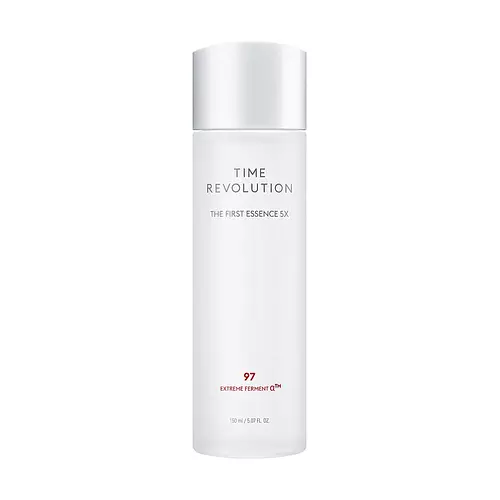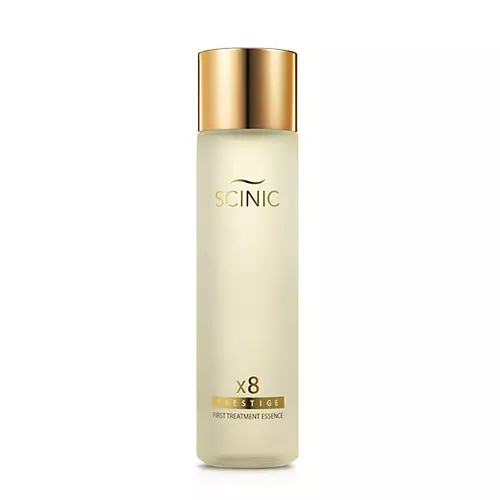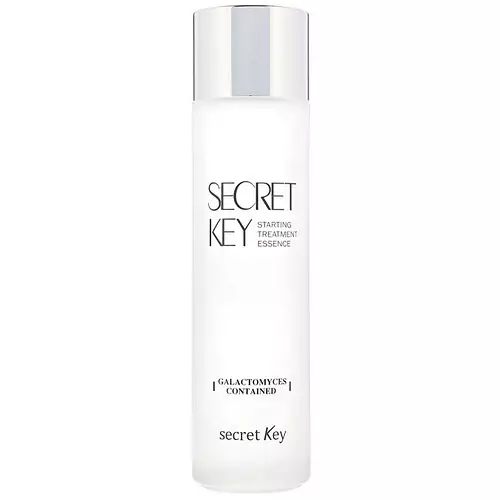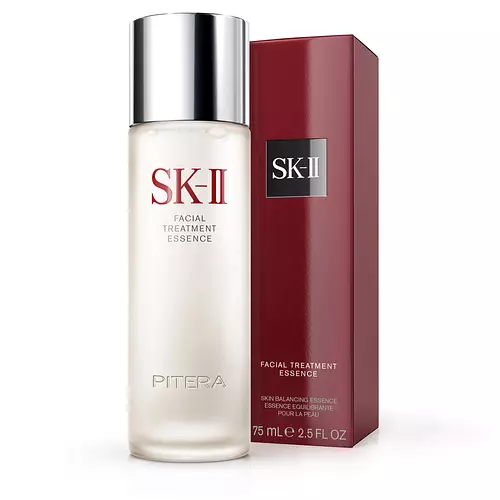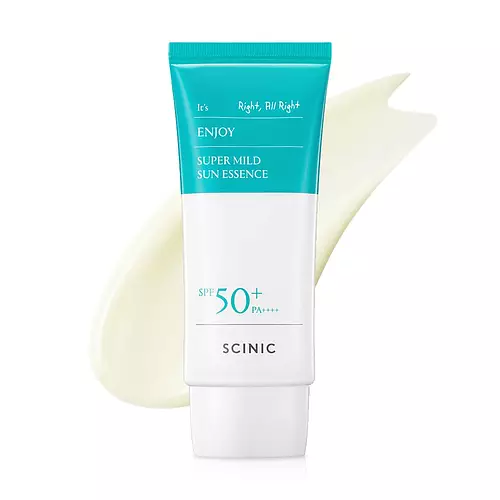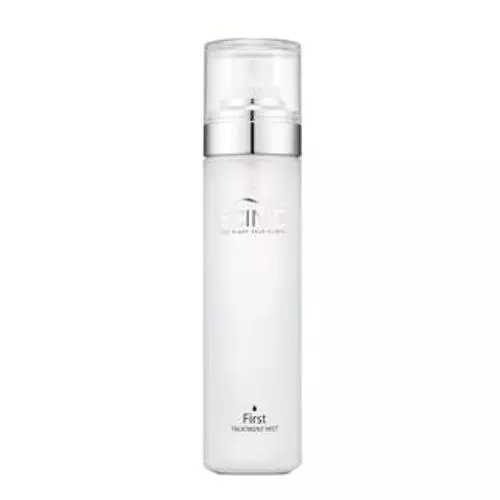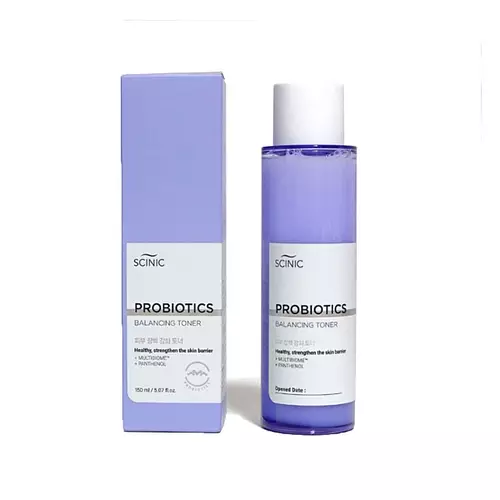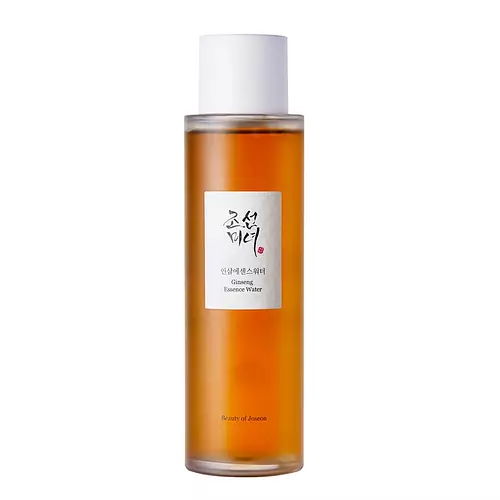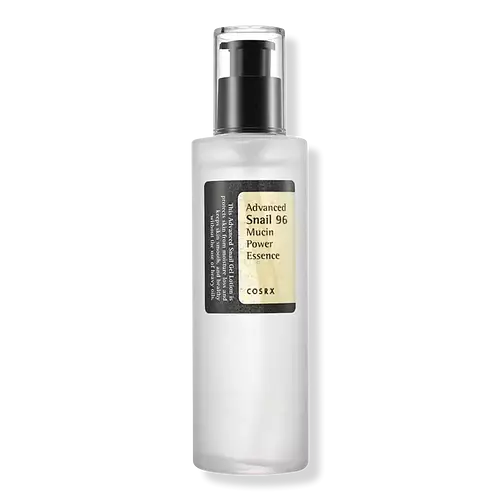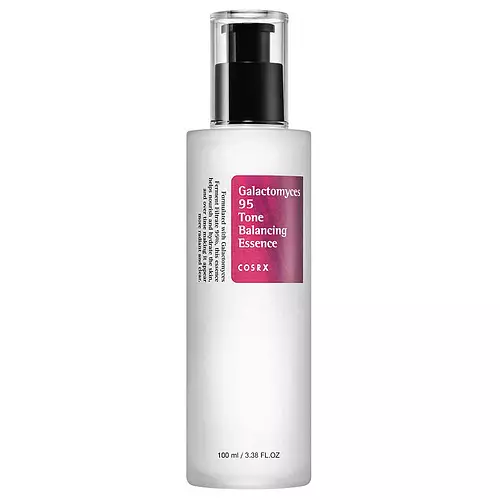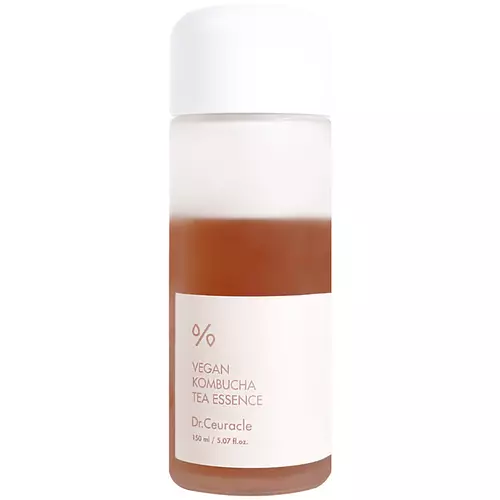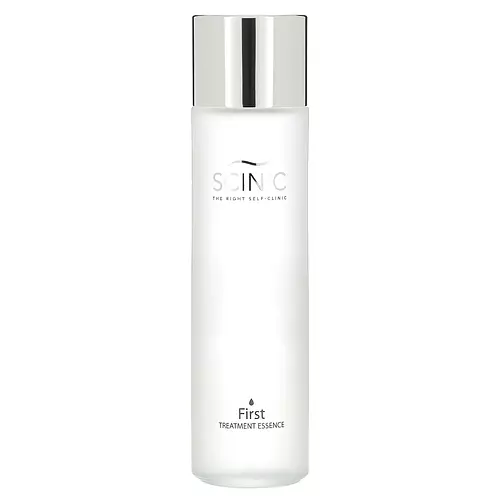
SCINIC First Treatment Essence Ingredients Explained
Overview
What it is
Essence with 14 ingredients that contains niacinamide
Cool Features
It is reef safe
Suited For
It has ingredients that are good for fighting acne, anti aging, dry skin, brightening skin, oily skin, reducing pores, scar healing and dark spots
Free From
It doesn't contain any harsh alcohols, common allergens, fragrances, oils, parabens, silicones or sulfates
Fun facts
SCINIC is from South Korea. This product is used in 11 routines created by our community.
We independently verify ingredients and our claims are backed by peer-reviewed research. Does this product need an update? Let us know.
Essence with 14 ingredients that contains niacinamide
Quick info
You should know
Notable Ingredients
This product contains 1 ingredient that may have this attribute:
Benefits
This product contains 1 ingredient that may have this attribute:
This product contains 1 ingredient that may have this attribute:
This product contains 1 ingredient that may have this attribute:
This product contains 1 ingredient that may have this attribute:
This product contains 1 ingredient that may have this attribute:
This product contains 1 ingredient that may have this attribute:
This product contains 1 ingredient that may have this attribute:
This product contains 1 ingredient that may have this attribute:
This product contains 1 ingredient that may have this attribute:
Ingredients 14
Galactomyces Ferment Filtrate (GFF) is a yeast traditionally used to make the Japanese alcoholic beverage, sake.
Butylene Glycol (or BG) is used within cosmetic products for a few different reasons:
Glycereth-26 is a synthetic ingredient and polyethylene glycol ether of Glycerin. Glycerin is already naturally found in your skin and helps keep your skin moisturized.
Niacinamide has emerged as an all-star ingredient due to its many benefits.
Pentylene glycol is typically used within a product to thicken it. It also adds a smooth, soft, and moisturizing feel to the product. It is naturally found in plants such as sugar beets.
Adenosine is in every living organism. It is one of four components in nucleic acids that helps store our DNA.
Portulaca Oleracea Extract is an extract of the whole plant of the Purslane, Portulaca oleracea L., Portulacaceae. It has anti-inflammatory, antioxidant, and hydrating properties.
Sodium Citrate is the sodium salts of citric acid. In skincare, it is used to alter pH levels and acts as a preservative.
Disodium EDTA plays a role in making products more stable by aiding other preservatives.
Citric Acid is an AHA derived from citrus fruits (think oranges, lemons, and limes!).
Ingredient Ratings
Based on the number of likes and dislikes each ingredient has received.
Ingredients Explained
Galactomyces Ferment Filtrate (GFF) is a yeast traditionally used to make the Japanese alcoholic beverage, sake.
GFF has moisturizing and antioxidant properties.
Studies show GFF improves our skin's natural moisturizing factors (NMF). Our NMF consists of many components that naturally moisturize our skin. Having healthy NMF keeps our skin plump, protected, and hydrated.
This ingredient tells our skin to create more filaggrin, an important component for NMF.
Filaggrin gathers all the structural proteins in our outer layer of skin and creates a tight barrier, helping to protect our skin against allergens and bacteria. This also helps prevent moisture loss.
Thanks to its antioxidant properties, GFF also protects our skin against oxidative stress and UV induced inflammation.
One study found GFF helped regulate sebum (oil) production and keratin in participants.
GFF may not be fungal-acne safe. We recommend speaking with a professional if you have concerns.
Many components of sake, such as GFF, are studied for their anti-aging benefits today. This is because sake brewers are known to have youthful hands.
Learn more about Galactomyces Ferment FiltrateButylene Glycol (or BG) is used within cosmetic products for a few different reasons:
- It is a solvent, meaning that it helps to dissolve other ingredients. This also enhances the absorption of the product into one's skin.
- It is a humectant, which means that it helps attract moisture into the skin.
- It helps improve product application.
Overall, Butylene Glycol is a safe and well-rounded ingredient. It is unlikely to irritate skin, and works well with pretty much all other ingredients.
Glycereth-26 is a synthetic ingredient and polyethylene glycol ether of Glycerin. Glycerin is already naturally found in your skin and helps keep your skin moisturized.
It is a humectant and helps add texture to products. It can make your product thicker.
As a humectant, it helps draw moisture from the air to your skin. This helps your skin stay hydrated.
Learn more about Glycereth-26Niacinamide has emerged as an all-star ingredient due to its many benefits.
It is known to treat acne by reducing inflammation. It also helps fade dark-spots and strengthen the skin by promoting the growth of the ceramide barrier.
Other benefits include smoothing wrinkles and minimizing redness.
The cherry on top? Niacinamide can also help build keratin, a protein that keeps skin firm.
When incorporating niacinamide into your routine, look out for concentration amounts. Typically, 5% niacinamide provides benefits such as fading dark spots. However, if you have sensitive skin, it is better to begin with a smaller concentration.
Niacinamide can be mixed with other ingredients to boost benefits. For instance, it has shown to be effective when used with copper, folic acid, and zinc to treat acne.
Learn more about NiacinamidePentylene glycol is typically used within a product to thicken it. It also adds a smooth, soft, and moisturizing feel to the product. It is naturally found in plants such as sugar beets.
The hydrophilic trait of Pentylene Glycol makes it a humectant. As a humectant, Pentylene Glycol helps draw moisture from the air to your skin. This can help keep your skin hydrated.
This property also makes Pentylene Glycol a great texture enhancer. It can help thicken or emulsify a product. Emulsifiers help stabilize a product. It does this by preventing certain ingredients from separating.
Pentylene Glycol also acts as a mild preservative and helps to keep a product microbe-free.
Some people may experience mild eye and skin irritation from Pentylene Glycol. We always recommend speaking with a professional about using this ingredient in your routine.
Pentylene Glycol has a low molecular weight and is part of the 1,2-glycol family.
Learn more about Pentylene GlycolAdenosine is in every living organism. It is one of four components in nucleic acids that helps store our DNA.
Adenosine has many benefits when used. These benefits include hydrating the skin, smoothing skin, and reducing wrinkles. Once applied, adenosine increases collagen production. It also helps with improving firmness and tissue repair.
Studies have found adenosine may also help with wound healing.
In skincare products, Adenosine is usually derived from yeast.
Learn more about AdenosineGlycyrrhiza Glabra Root Water is from the licorice root.
One component of licorice root, glabridin, has extra potent antioxidant and soothing properties. It has also been found to block pigmentation from UVB rays in guinea pigs.
Licorice Root also contains a flavonoid. Flavonoids are a natural substance from in plants. Flavonoids also have antioxidant properties.
Another component, glycyrrhizin, has been found to have anti-inflammatory and antimicrobial benefits. This may make licorice root extract effective at treating acne. However, more research is needed to support this.
Liquiritin is one of the flavone compounds found in licorice. It has been found to help lighten skin by preventing tyrosinase from reacting with tyrosine. When the two react, protein is converted to melanin. Melanin is the substance in your body that gives your features pigmentation.
Learn more about Glycyrrhiza Glabra Root WaterPortulaca Oleracea Extract is an extract of the whole plant of the Purslane, Portulaca oleracea L., Portulacaceae. It has anti-inflammatory, antioxidant, and hydrating properties.
Purslane is very nutritious. It contains omega-3 fatty acids, NMFs, many vitamins, minerals, and antioxidants. The vitamins found in purslane include: Vitamin C, Vitamin A, and Vitamin E.
Purslane is a succulent with an extensive habitat. It is used in traditional Korean medicine to treat irritated skin.
Nowadays, it is becoming a superfood due to its highly nutritious content.
Learn more about Portulaca Oleracea ExtractWe don't have a description for Rubus Coreanus Fruit Extract.
We don't have a description for Sea Water.
Caprylhydroxamic Acid is a chelating agent.
Chelating agents help prevent metal ions from binding to other ingredients. This helps prevent unwanted reactions and effects from using the product.
Caprylhydroxamic Acid is often used with natural antimicrobial products as an alternative to preservatives.
Learn more about Caprylhydroxamic AcidSodium Citrate is the sodium salts of citric acid. In skincare, it is used to alter pH levels and acts as a preservative.
Sodium Citrate helps maintain the pH of a product. Normal pH level of skin is slightly acidic (~4.75-5.5). The acidity of our skin is maintained by our glands and skin biome. Being slightly acidic allows our skin to create an "acid mantle". This acid mantle is a thin barrier that protects our skin from bacteria and contaminants.
Sodium Citrate is a chelating agent. It neutralizes metal ions from water and prevents them from binding to other ingredients. This ensures the other ingredients will not be altered.
Learn more about Sodium CitrateDisodium EDTA plays a role in making products more stable by aiding other preservatives.
It is a chelating agent, meaning it neutralizes metal ions that may be found in a product.
Disodium EDTA is a salt of edetic acid and is found to be safe in cosmetic ingredients.
Learn more about Disodium EDTACitric Acid is an AHA derived from citrus fruits (think oranges, lemons, and limes!).
If you spot Citric Acid near the end of an ingredient list, it's likely there as a pH adjuster rather than an active ingredient.
As an AHA, Citric Acid removes the top layer of skin cells from the newer layer of skin underneath. This helps skin to remove dark spots and look more even.
Read more about some other popular AHA's here:
Learn more about Citric AcidWhen to use
How this product is used by our community
Compared With
Here are some products that it's often compared with
More SCINIC Products
See all SCINIC productsMore Essences
See all essencesWe're dedicated to providing you with the most up-to-date and science-backed ingredient info out there.
The data we've presented on this page has been verified by a member of the SkinSort Team.
Read more about us

